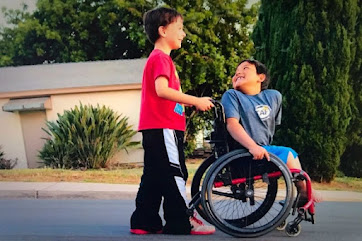Remembrance day
What do you see here? Where do you think it is, what is it for? What is this story about?
The photo shows poppies cascading down a church wall, for Remembrance day.
What is Remembrance day?
This week people across the country are remembering the soldiers who died in World War 1, World War 2 and other conflicts. It is a time to give thanks to all those who gave service.
How long ago were the world wars?
Why do we still remember people who were in a war over 100 years ago?
At 11:00 on 11th November, people across the UK observe a two minute silence.
Why do we do this?
Lots of people wear poppies and there are ceremonies and march in London where a poppy wreath is laid at a war memorial by the King.
Why do people wear poppies?
The reason we wear poppies is because after World War 1, poppies grew on fields where the battles were held. The poppies have become a symbol of remembrance, not just to those who died in World War 1, but for all those who have died on behalf of their country.
This year is very special for two veterans who are joining 10,000 soldiers in the remembrance day march at the cenotaph in London. James Alfred Sibbet and Ian Baker are visually impaired and have not been able to march with the veterans before.
What is a veteran?
What does visually impaired mean?
Why do you think James and Ian were not able to join the march before?
Both men are supported by Sight Scotland Veterans to join the march. James Sibbet is 95 years old and says, "To me remembrance is about honouring a group of people who dedicated themselves to the safety and wellbeing of their country and everyone in it. These are individuals who made the choice to serve. Those of us who did share a deep sense of connection and understanding."
What does he mean?
"I never thought I would be able to do this, especially after losing my sight."
Ian Baker says, "I've lost many good friends and family in different conflicts and this is my chance to pay tribute to them. I never imagined I's get to be past of something like this, especially after losing my sight. It means more to be than I can put in to words."
Why do you think this means so much to James and Ian?
Ian says, "As the old saying goes, for our tomorrows they gave their todays. I can't thank these people enough for the sacrifices they made and the freedoms we have today."
What does "For our tomorrows they gave their todays" mean?
What can we learn from Ian and James?
Why is this about No Outsiders?
Which British value is this about?
Do you want this assembly as a power point? To join the free mailing list and receive these assemblies as power points every week, email me on a.moffat@excelsiormat.org (please note, I will not be able to send this out to people in time for Remembrance day after mid day Monday 10th)
No Outsiders: We belong here by Andrew Moffat (scheme of work for primary schools)
Register to be a No Outsiders school (get access to members page with additional resources)
Watch CPD films showing schools teaching belonging






Comments
Post a Comment